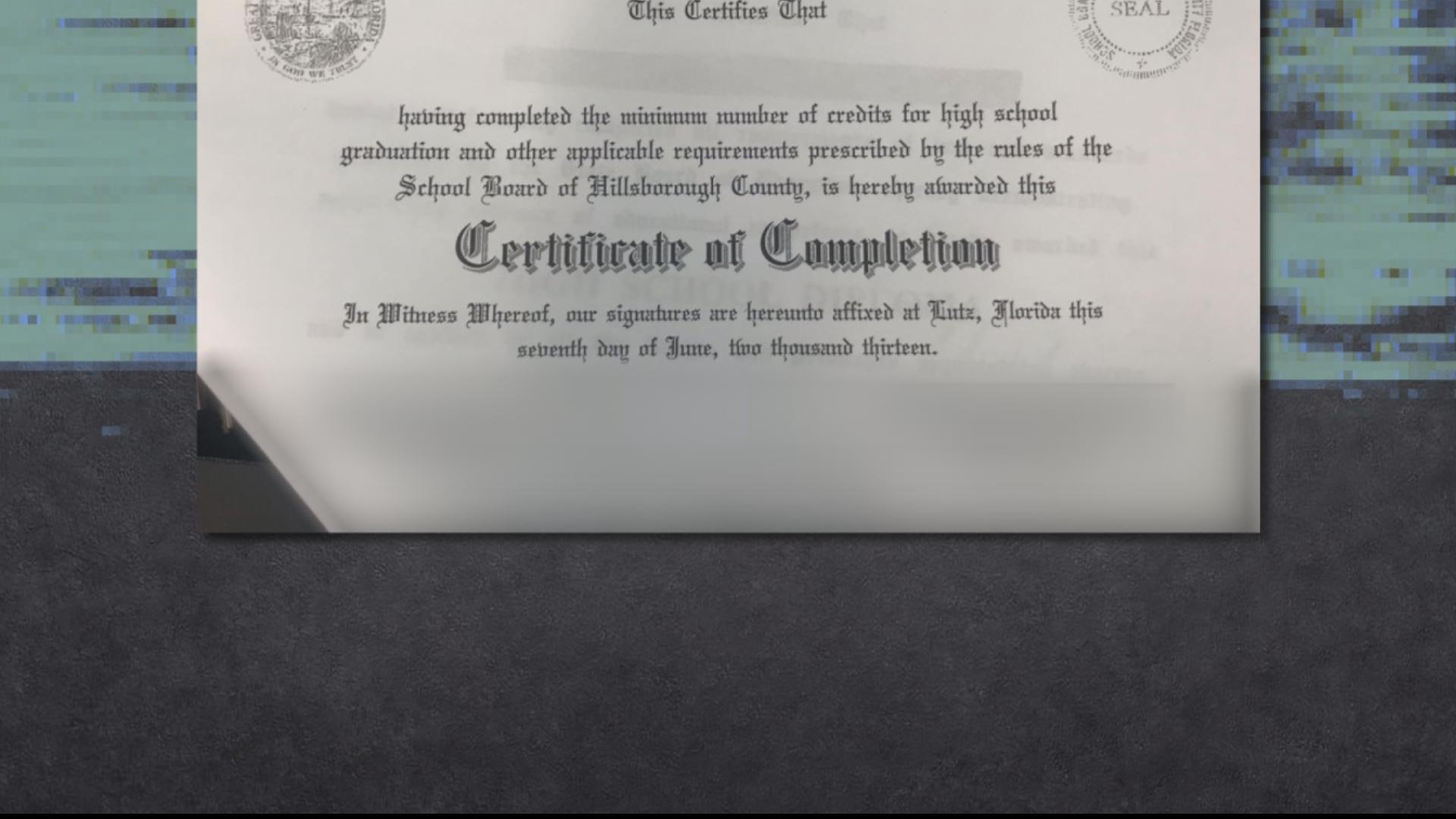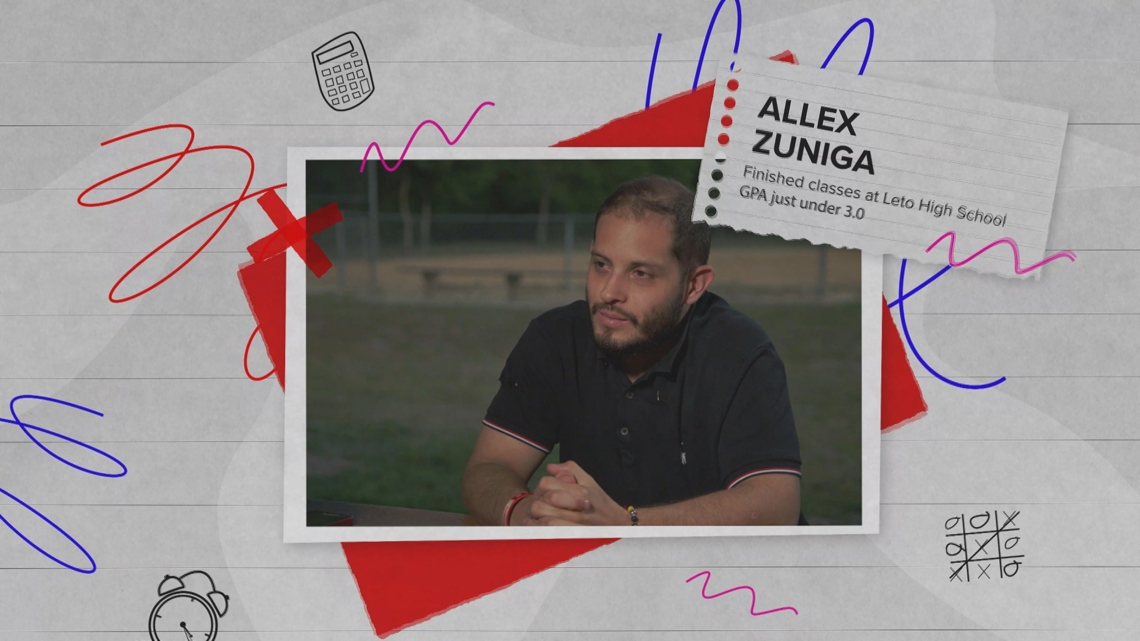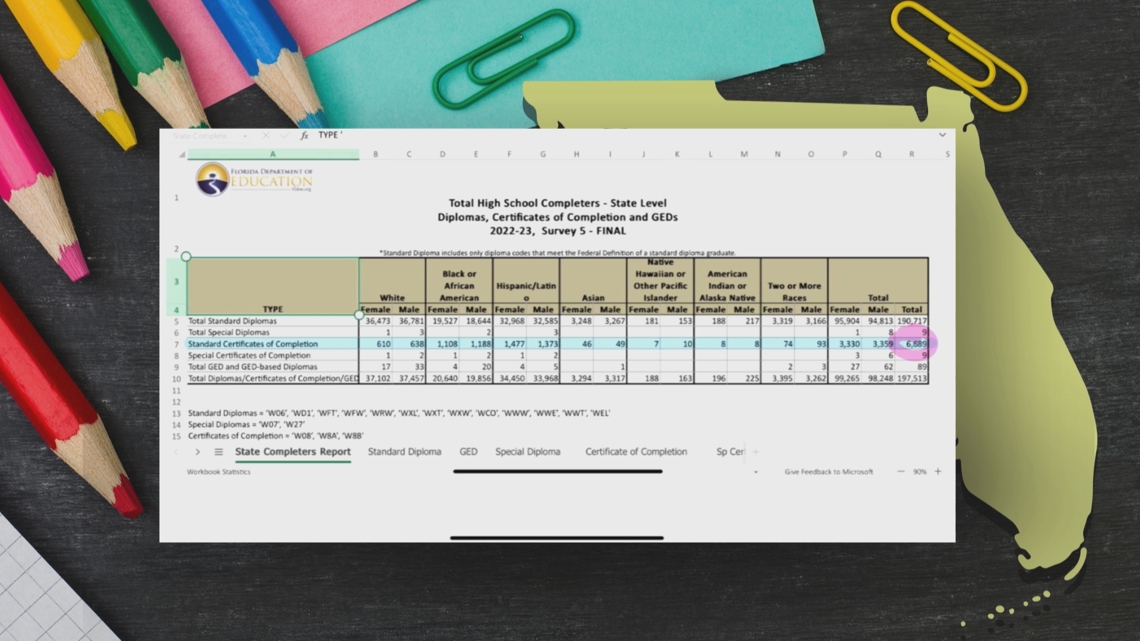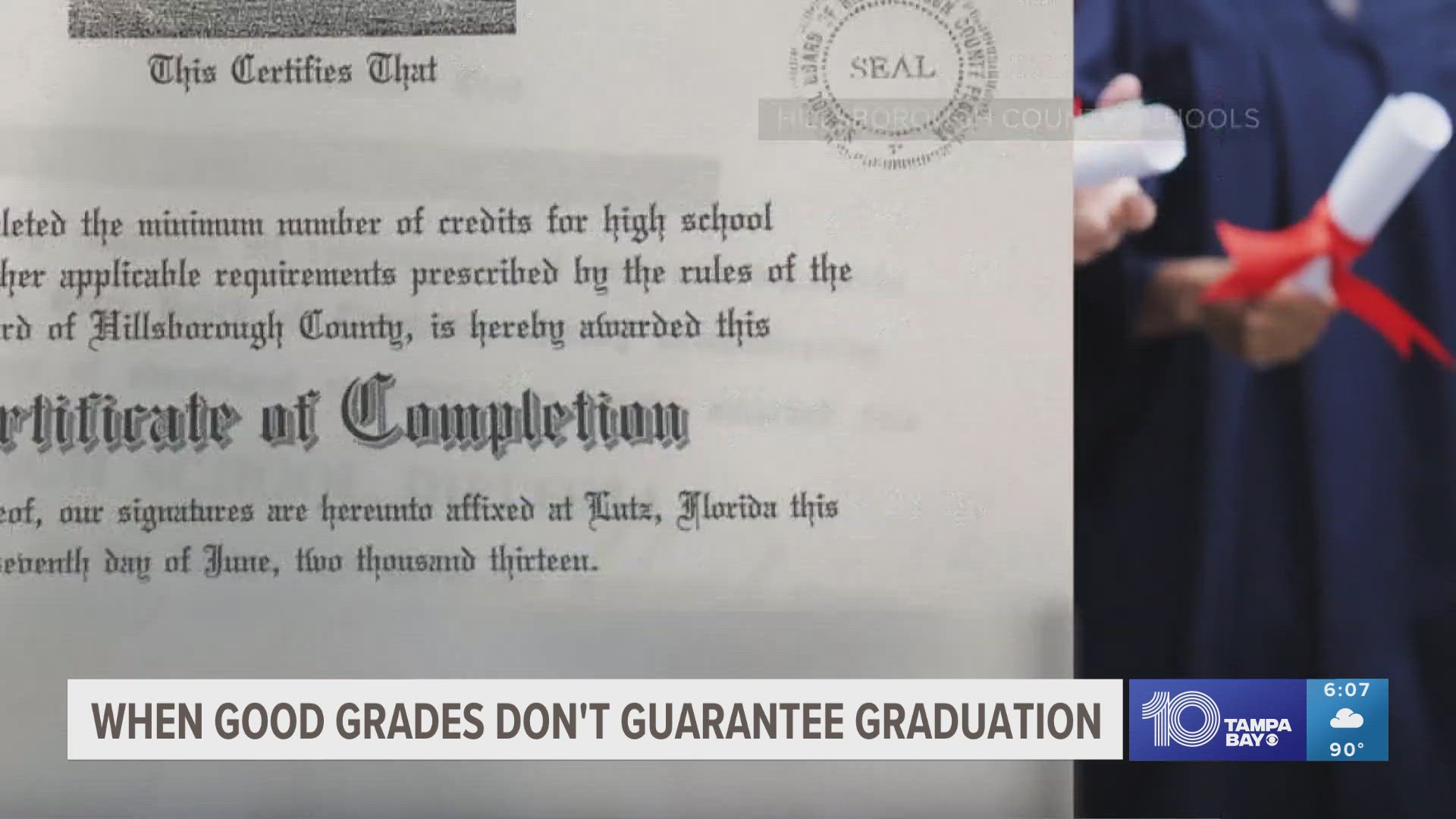When good grades don't guarantee graduation
Florida students who complete their coursework with passing grades aren't guaranteed to receive a diploma.

As high school students across Florida prepare to receive their diplomas, thousands will walk the stage to receive certificates of completion instead. That’s even if they have passing grades and completed all their coursework.
The certificate limits employment options and does not allow students to enroll in college or even join the military. Educators say for many students, one test often stands between them and graduation.
‘WE WORKED SO HARD FOR THIS’ One test can stand between students and graduation.


Just a few months before Allex Zuniga was set to graduate from Hillsborough County’s Leto High School in 2013, a guidance counselor told him he would be receiving a certificate of completion instead.
Zuniga, who held a grade point average of just under 3.0, had not passed the FCAT, or the Florida Comprehensive Assessment Test, which was a prerequisite for graduation.
“Just because of one test, we’re not able to get our diploma,” he said.
Zuniga is one of thousands of students across the state who’s received a certificate of completion instead of a diploma, despite earning passing grades and all course credits.
State law says students must pass certain state assessments in reading and math before they can graduate.
“We worked so hard for this,” he said. There’s got to be something that we can do. But no, you have to pass that test.”
Zuniga said his test scores were just shy of passing.
“I missed it by like just a couple of points,” he said.
While the FCAT is long gone, some educators say changing standards place unreasonable burdens on students.
The class of 2024 must currently earn a 246/308 on the state’s F.A.S.T. ELA reading exam and a 398 or 400 on their Algebra I end-of-course or EOC examination, depending on when they first took the class.
Students can also graduate by earning concordant scores on the SAT of 480 in reading and 420 in math, an 18 in reading and 16 in math on the ACT and a 36 in reading and an 11 in math on the new Classic Learning Test or CLT.
SCHOLARSHIP AT STAKE Some students risk losing post-grad plans.


In his four years at Armwood High School in Hillsborough County, Rashad Godfrey, Jr. has worked just as hard on his mind as he has on his muscles.
“He doesn’t complain. He’s going to show up. Whatever you ask him to do,” head football coach Evan Davis said.
Godfrey, a defensive back at Armwood, holds a 3.0. But like Zuniga, one test stood between him and graduation.
“There’s not words to describe how frustrating it is. How helpless you feel,” Davis said. A young man, like I said, who just does everything right for you every single day in the week, is the poster child of what you want to do—that there’s some test that is holding him up and you can’t be there to help him.”
Godfrey struggled with meeting his reading benchmark, and it threatened his full-ride football scholarship to the University of Iowa.
“It wasn’t that he wasn’t a strong reader. It wasn’t that he didn’t know how to do the work,” Armwood Principal Dina Langston said. “The struggle sometimes comes with the time. Tests are timed, and that becomes really stressful.
It's stress Langston helped Godfrey manage by working with him on a regular basis outside of class.
“I would let the teacher know that he reported to me and we would just work,” she said. “We’d work on grammar, we’d work on reading. We’d work on test taking.”
Langston did not want Godfrey to become a statistic.
“When you see so many students with great GPAs—they work hard, they come to school, they give you your best. You don’t want that kid to have a certificate of completion,” Langston said.
CERTIFICATES ACROSS THE STATE Biggest disparities among Hispanic and Black students


Through public records from the Florida Department of Education, 10 Investigates found that 6,689 students statewide received certificates of completion last school year. More than 1,800 came from counties across the Tampa Bay area. Polk County had the most at more than 700. The biggest disparities were among Hispanic and Black students.
“For Hispanic students, I think nine times out of ten, for them, it’s language acquisition,” Former Hillsborough County School Board Chair and State Rep. Susan Valdes, (D) District 64, said. “The African American population, I believe that it is also some sort of language acquisition, as well as resources. There’s a lot that our communities have in common in socioeconomic status.”
On top of that, research shows Black and Hispanic students are more likely to attend schools that have less experienced teachers, more turnover and higher numbers of substitute teachers.
Rep. Valdes has filed legislation around certificates of completion and says part of her motivation for running for office is to one day remove them altogether.
“This particular certificate just really does nothing for that child in order to move forward in their post-academic career and in their adult life,” she said. “So, if the student is interested in going into the military, it’s not happening. If the student is interested in going to college, it’s not happening.”
It's something Allex Zuniga knows all too well. After receiving a certificate of completion in 2013, he continued to work toward his diploma at the urging of Rep. Valdes. He took tests for three years, still missing the passing mark by just a few points. This triggered a cycle of depression and low-wage jobs.
“Just because of one test, we’re not able to get our diploma. That’s so much pressure on a teenager like that,” he said.
But in 2016, a breakthrough.
“I finally got my diploma and I was able to move forward with my life,” he said.
Rashad Godfrey can almost say the same.
“It was a lot of emotions. I didn’t know if I was to jump, cry, scream—what to do,” he said.
With the help of Ms. Langston, he finally passed his exam. He’ll get his diploma this Sunday before heading off to Iowa on that full ride.
“Just really excited,” he said.
But for hundreds of others who’ll get certificates of completion instead, the weight of one test still holds many of them down.
“No student should ever have to go through this,” Zuniga said.
According to the National Center for Fair and Open Testing, Florida is one of just nine states in the country that require so-called exit exams from high school students in 2024.
Emerald Morrow is an investigative reporter with 10 Tampa Bay. Like her on Facebook and follow her on X. You can also email her at emorrow@10tampabay.com.


